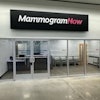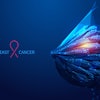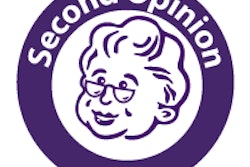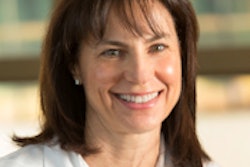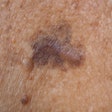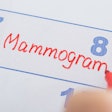Younger women in the U.S. apparently haven't heeded recent advice on mammography screening by the U.S. Preventive Services Task Force (USPSTF). A recent study published April 19 in Cancer found that screening rates have remained steady for women ages 40 to 49 after the USPSTF's 2009 guideline change.
The USPSTF that year changed its screening recommendations, advising that women ages 40 to 49 consult with their physicians on whether to undergo screening. The group previously had advised routine screening for these women.
A group from Brigham and Women's Hospital decided to analyze the impact of the new USPSTF position on mammography screening rates by analyzing volume for women 40 to 49, and for all women. Their data pool came from nearly 28,000 women who were asked about their mammography use in 2005, 2008, and 2011 in the National Health Interview Survey, a household survey of the civilian, noninstitutionalized U.S. population.
The researchers found that 51.9% of women of all age groups reported undergoing mammography in 2008, a rate that rose to 53.6% in 2011, an increase that was statistically insignificant (p > 0.07). Among women in the 40 to 49 age group, mammography rates rose from 46.1% of women in 2008 to 47.5% in 2011, also a statistically insignificant increase (p > 0.38).
The researchers said that their results mirror those of a study using Medical Expenditures Panel Survey data, which indicated that from 2009 to 2010, self-reported rates of mammography over the past two years did not change significantly in either women in their 40s or women in their 50s.
The research team, led by Dr. Lydia Pace, speculated as to several possible reasons for the lack of change. For one, uptake of the revised USPSTF guidelines could have been delayed, and the study could have been too early to detect a decline. What's more, many healthcare providers and women themselves may have disagreed with the new guidelines, as indicated in several research studies published after 2009.
The researchers acknowledged the recent controversy over the benefits and harms of mammography screening, such as false-positive exams, as well as the concept of "overdiagnosis," or the detection and treatment of lesions that may not pose a threat during a woman's lifetime.
"Experts disagree about both the magnitude of benefits and harms of screening (particularly in younger women) and whether the potential harms should impact screening practices for low-risk women," the authors wrote. "Furthermore, the importance of false-positive results and overdiagnosis for an individual patient may depend on that individual's personal characteristics and values."
